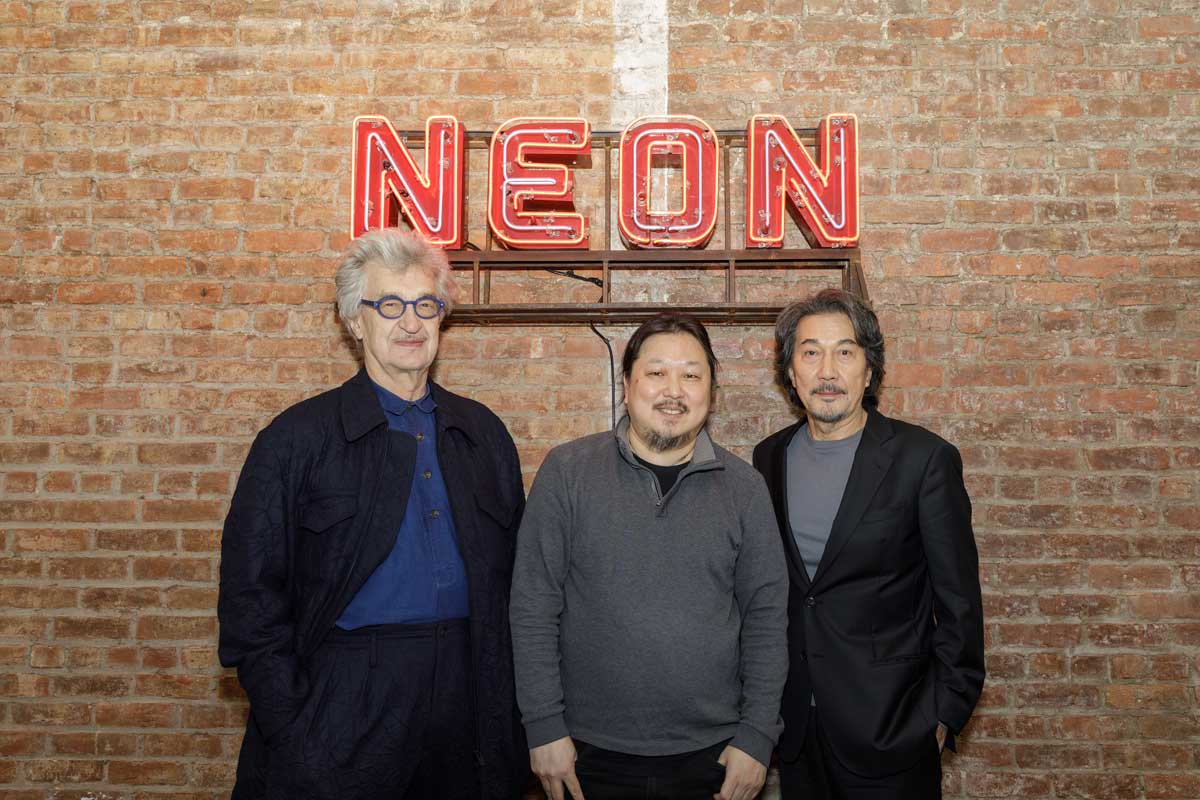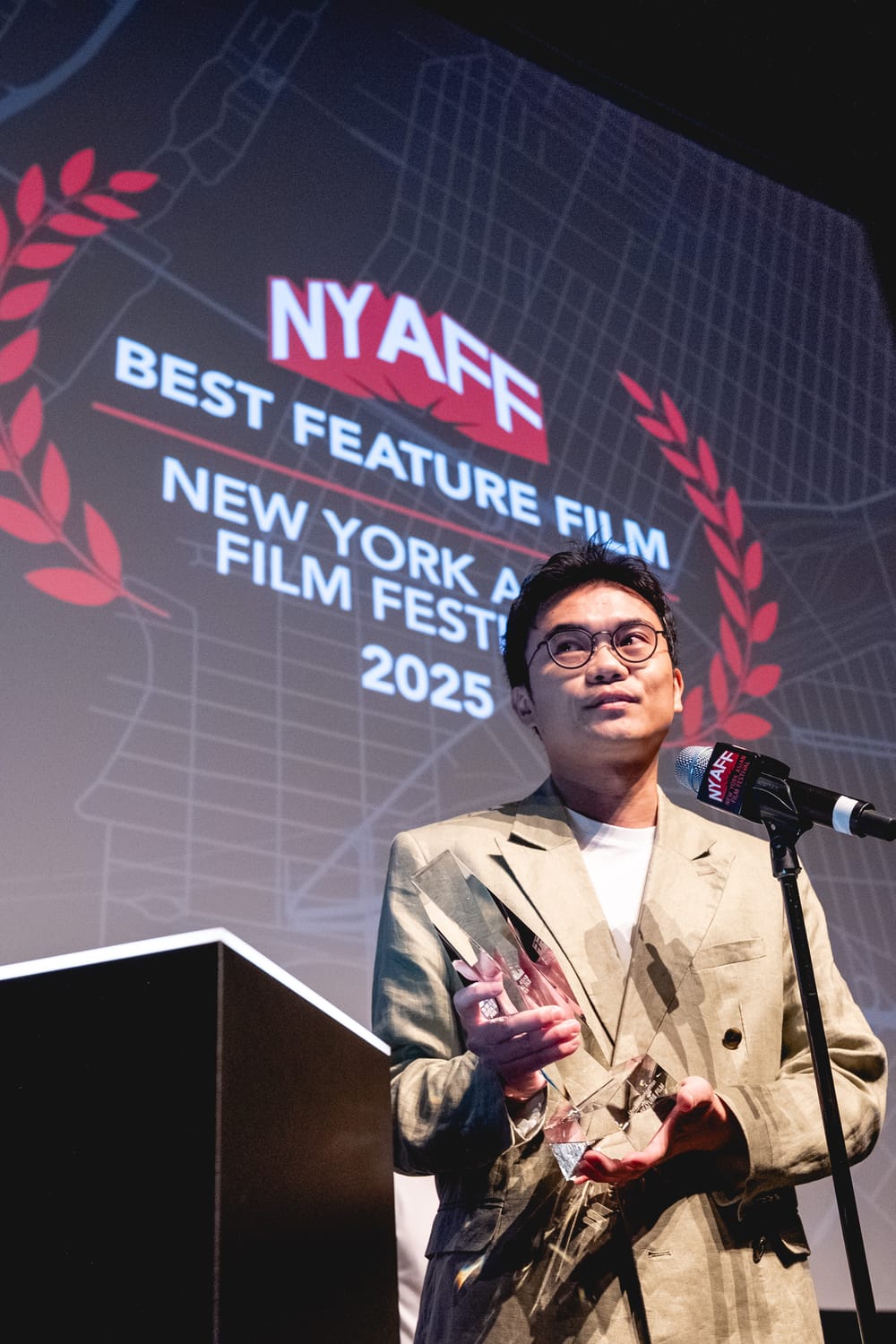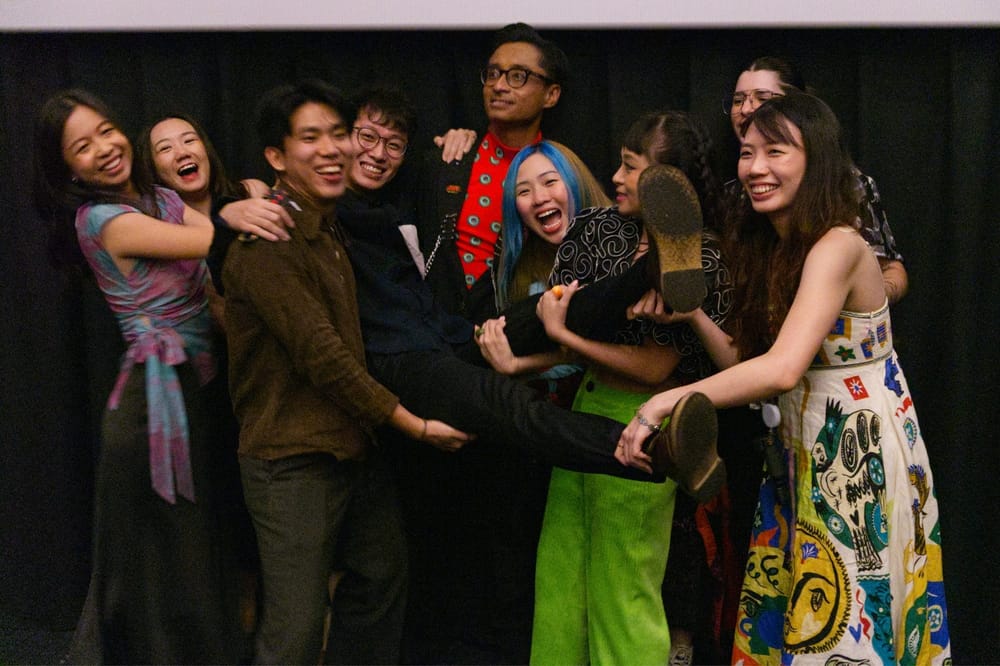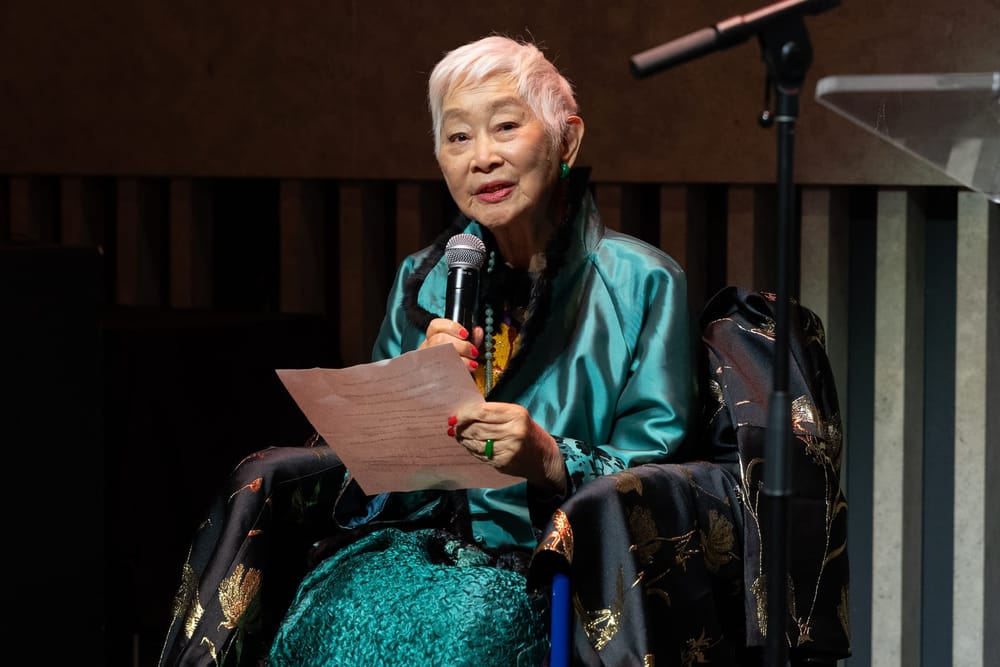By Samuel Jamier
Watching someone clean public bathrooms might not be your idea of great cinema, but that is exactly the feat that the German-Japanese co-production, "Perfect Days," pulls off. Returning to the heights of his "Paris, Texas" days, legendary director Wim Wenders offers what is perhaps his most personal and poetic film.
The German filmmaker has stripped his take on Tokyo of all the usual exotic trapping and stereotypical snapshots of the megalopolis. (None of the shots featuring Shibuya Crossing crowds, Shinjuku back alleys, or any of the overused locations that many filmmakers often rely on were included.)
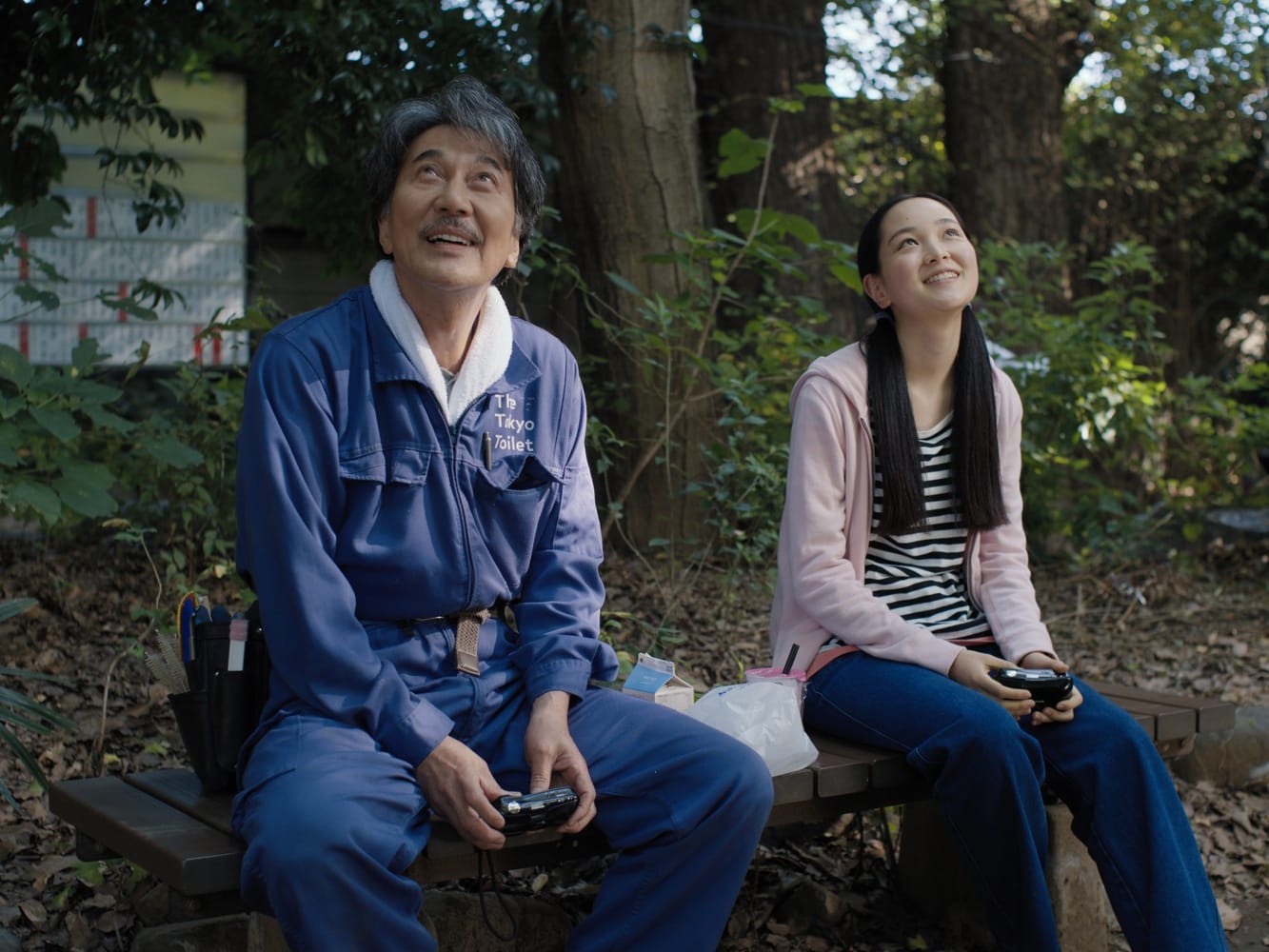
Instead, Wenders opts for a disarmingly and deceptively simple storytelling approach, presenting the chronicle of a toilet cleaner's ordinary days that ultimately stands as a masterclass in poetic minimalism.
As the camera meticulously follows, step by step, the careful choreography of its protagonist’s monk-like routine, the vivid portrait of a man with an untold past emerges, and another story unravels: a quest for beauty, meaning, and perhaps also solace sought in the smallest of moments and things.
This study of a man living on his own terms, a kind of contented Sisyphus, is a testament to the grace of finding contentment and more importantly, dignity and worth, even in the most menial work.
"Perfect Days" premiered on May 25 at the 2023 Cannes Film Festival, where it competed for the Palme d'Or and predictably received critical acclaim and accolades. It won the Prize of the Ecumenical Jury and the Best Actor Award for Koji Yakusho. It made history as the first non-Japanese directorial work to be nominated as Japan’s entry to the Best International Feature Film at the 96th Academy Awards––and is currently competing.
Wenders and Yakusho sat with NYAFF director Samuel Jamier for a chat about their latest at Neon’s New York office a few weeks ago. During the conversation, they shared a few of the secrets behind the film (now in select theaters) while also leaving a hint of mystery in the air.
NYAFF: (to Yakusho) It's good to catch up with you after all this time. Has it been 10 years?
Let me ask you first, Wim Wenders, about the concept of komorebi. Basically, that's the last word of the movie––ok that's a bit of a spoiler perhaps, albeit conceptual. Even though this word comes at the very end, it seems to be the building block of the film, its starting point or foundation so to speak: was it something you thought of as the basis for "Perfect Days?" And did you think of Koji Yakusho right away for the part?
Wenders: Yes, it’s something I had in mind pretty much from the start and that was already in the script. And it was critical in terms of building the character of Hirayama, which was a blank slate in the early stages of the writing.
I was familiar with Koji's films, and I’ve always admired what he does. So yes, I think I also always had him in my mind for the protagonist of the film. And there's something about Koji... something of the artisan, the craftsman.
That’s of course central to the film. It's an aspect of his personality that shapes his character, what he is in the present but also in the hints to his past, the fact that he has some kind of dark past. [turning to Yakusho]. Koji, your turn?
Yakusho: Of course, I was very happy to be approached for this, in the first place, knowing it was going to be a Wim Wenders film and I just had this feeling that it would be a really beautiful film. In terms of Hirayama the character or Hirayama the man, I guess I really was attracted to the fact that he is satisfied with all aspects of his very simple life and the fact that he has such gratitude for every part of his life. It was very appealing to me.
NYAFF: But the character was originally kind of a blank slate, as you just said. There are many annotations on the script about what the character is supposed to be, so I wonder how that was built? (to Yakusho) I understand you got some notes from director Wenders on the topic? How did you actually work together to infuse lifeblood into the character on screen?
Wenders: In this script there was very little indication of what his past was. I loved the idea that the audience would sense that he had a different past, maybe a privileged past, but that they would have to put it together themselves. Because I felt it would implicate the audience in a good way and they would imagine who he had been. Although it is more or less clear in the course of the film, it hasn't always been indicated.
But then Koji wanted to know…“Didn't you have any other ideas? What sort of man was he?” So I said yes, I actually wrote it down. As a director, I’d better know what I’m doing. And then I realized even if I didn't want to share that with an audience, he had the right to read my notes so I did share my fictional biography of Hirayama with Koji. He loved what he read. I think the character became more obvious to him. But I still can’t… I still refuse to talk about it.
NYAFF: Why?
Wenders: I love that the film was a mystery…Who was Hirayama? What did he do before? And when his sister comes in this big Lexus, well, he probably used to have a car like this and when she gives them the expensive chocolates, and when she says “your favorite ones”... Well, that implies he must have lived a life where expensive chocolates were normal. So I did show him his biography. And in the biography, the concept of komorebi plays a… [turning towards Yakusho] Do you think I should tell him the story, Koji? No? (laughing). I guess that’s not happening then.
NYAFF: (asking Yakusho) So I want to ask you how different it was to work with Director Wenders? Were you concerned about making a film with a foreign director? Was working with someone who communicates in a different language a concern?
Yakusho: So I was maybe just slightly uneasy about the communication factor when I started the job, but as they [Wenders and Takuma Takasaki] wrote the script, and that was really the roadmap for the film, I just kind of followed that map, and it was a very seamless process.
Wim and Franz [Lustig, the director of photography] basically shot in such a way that it felt like they were just following Hirayama’s life. And so towards the later part of the shoot, we didn't really need to communicate much at all. And it was also a set where I was sort of re-taught the joy and the freedom of shooting through the way Wim directed and ran the set.
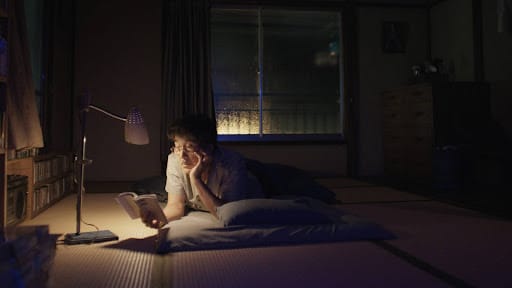
Wenders: I have to expand on this part a little bit. During the first couple of days, the process was like this: we always rehearsed, and then we shot. But then after a while, each time we rehearsed with Koji… how do I put it? Well I wish we would have shot the rehearsal, because that was fresh and new.
So I asked Koji: “Would you allow me to shoot the rehearsal, next time?” and he was a little surprised, but he said, “Yes, if you think it’s good.” And I really loved that, it became almost a regular way to discover a scene that we already shot the rehearsal of, and maybe then we adjusted it. Only when we had dialogues, because there were other people involved, who didn't know us so well, then we did have a rehearsal.
So the longer we shot, and we only had these 16 days for that, the more it felt like we were using documentary methods to follow a fictional character. And Kojiwas so much like Hirayama that it was great to shoot without rehearsal and to find out what Hirayama would do.
Like one morning, on his day off, the script just says he cleans up his apartment and I asked him “What do you need?” He said, “Well I’m happy that we’re shooting a rehearsal because I'd like to show how I would clean it.” And we had no idea that he would then bring up a bucket of water and a bunch of newspapers, and put the newspaper in the water and spread it all over. And even the Japanese people in the group didn't quite know what he was doing. Afterwards, he said:
“That's how my grandmother cleaned the toilet.” So he did surprise us quite often, shooting a rehearsal was a beautiful way to get close to the character… Of course, the dialogue with the ex-husband, in the end – we did have to rehearse it.
Anything that involved dialogue with Takashi [the character played by Tokio Emoto], well that, we did have to rehearse, but when Kojiwas on his own, we always shot immediately as if we were making a documentary, because he knew the character so well. As for our communication, we did have a translator. We also had sign language, and talked with our eyes and hands, and with just a little indication sometimes, body language was enough at the end of the second day.
NYAFF: I want to ask you, since director Wenders mentioned that you were cleaning that toilet the way your grandmother, you said, was cleaning it, what's more important – real-life experience, building it from the “intertext” of other movies or expressing yourself as an actor when it comes to building a character for this film and in general? A lot of people take inspiration from other films.
Yakusho: I didn't incorporate anything from the outside at all. There might have been subconscious overlaps between Hirayama's experiences or character and my life, but it was really just about Hirayama's life. Hirayama has a past, which I won't talk about or reveal here, but it was definitely a helpful part in understanding him -- a big hint in portraying Hirayama. It was so crucial that the title Perfect Days wasn’t finalized until the last moment. We also considered komorebi as an alternate title. The backstory is both beautiful and sad, involving komorebi, which was the biggest influence in creating Hirayama's character.
NYAFF: Thank you. You're talking about shooting a documentary about a fictional character. Was the choice of aspect ratio part of this, and how deliberate was it? It didn't seem like you planned to shoot it like a documentary until actual filming.
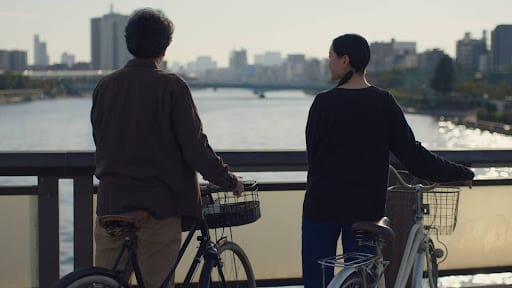
Wenders: We knew some locations where we would work – the toilets are small, tiny places, as is his apartment. Shooting in widescreen wouldn't capture the floor, and I felt the floor was important both in his home and in the toilet. So we chose this rather old-fashioned format. Once we'd chosen that, I realized it was the format of many other movies, so we were working in a good tradition. It felt natural, especially in those narrow spaces. After a while, I was happy we weren't shooting in widescreen because it suited his world and seemed appropriate.
NYAFF: Regarding the title Perfect Days, I want to talk about the soundtrack. Was the choice of the Lou Reed song already included? What came first in the debate between komorebi and Perfect Days?
Wenders: As you mentioned, komorebi was a working title. I had another based on Hirayama, but we decided on komorebi. In the script, most of the songs were already included. For one of the scenes with the songs, Takuma, my co-writer, and I both had the same idea at the same time. Initially, it was komorebi, which we loved, but Perfect Days was more emotional.
Komorebi would have been more difficult for international audiences, almost like the title would need a subtitle. So, from the day Hirayama was lying on his tatami listening to the song, we knew it. We then had to clear the rights to use the song in the movie and as a title, which was a bit challenging, but it worked out, and I'm very grateful for what Lou Reed and the musicians have done.
NYAFF I want to ask both of you: what did you see in each other's work? What aspects struck you the most? Was working together different from what you imagined about director Wenders and Yakusho?
Wenders: For me, the most important thing was how Hirayama saw the world, as he's almost in every shot of the movie. So his perspective becomes how the audience sees the world and his job. Understanding his routine and thought process was crucial.
Therefore, his eyes were the most important part. You don't really know how an actor sees the world until the first shots. The first shot in the film is when he wakes up; we wanted to start with the first thing he sees when waking up. And when he comes out of his house and looks at the sky, that was an important way to start his routine.
When I saw the way he woke up and opened his eyes, and how he looked at the world, I realized he had these wide-awake, kind eyes. That’s why I like doing all the movies. The first time I saw him act, I sensed the frankness and kindness in him, and I thought it was Koji himself. You can't portray kindness so genuinely if it isn't there. But I've also seen him play bad cops very well as well.
NYAFF: What about you, Yakusho-san, the same question?
Yakusho: Wenders is a director that I hugely respected from the past and had seen many of his films. But what I didn't expect was to experience such deep humor on the set from him and that was a very nice surprise. And also I'm called the hareta otoko, the “sunny man” that always brings sunshine. But our director here is ame otoko (“rain man”). In this battle between the hareta otoko and the ame-otoko, I was definitely not the victor. Because his power was so immense, and it rained a lot during the shoot.


